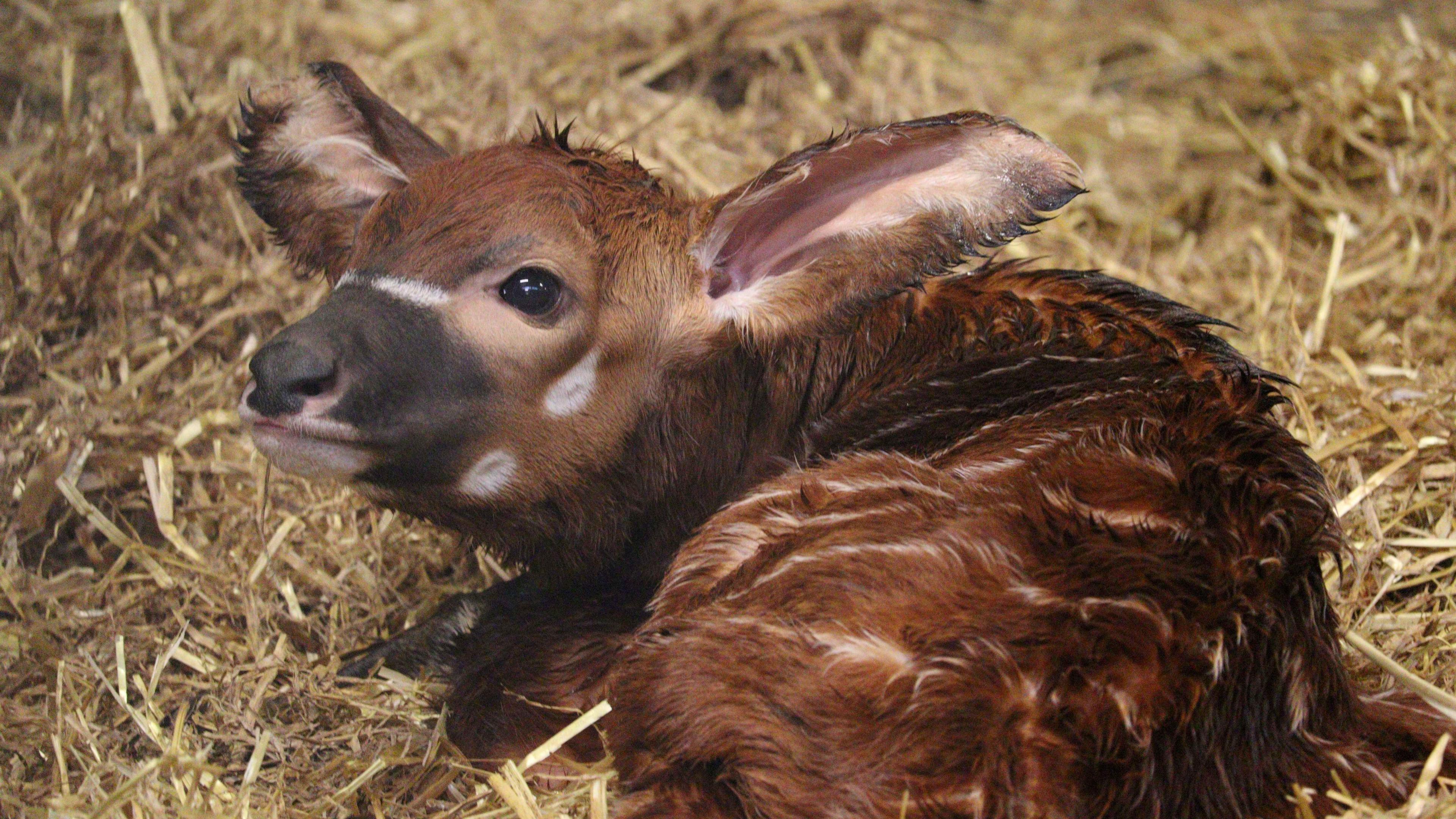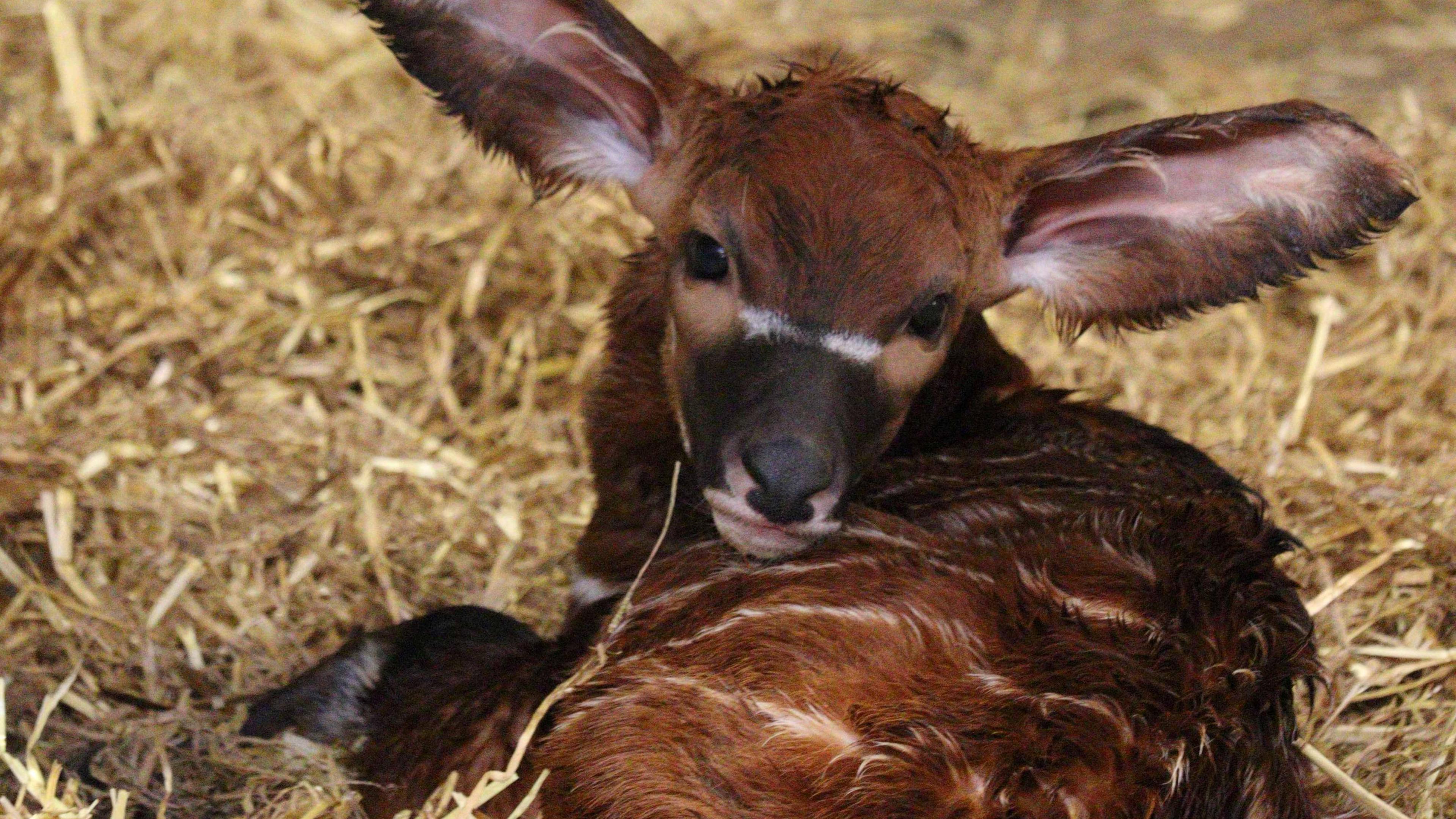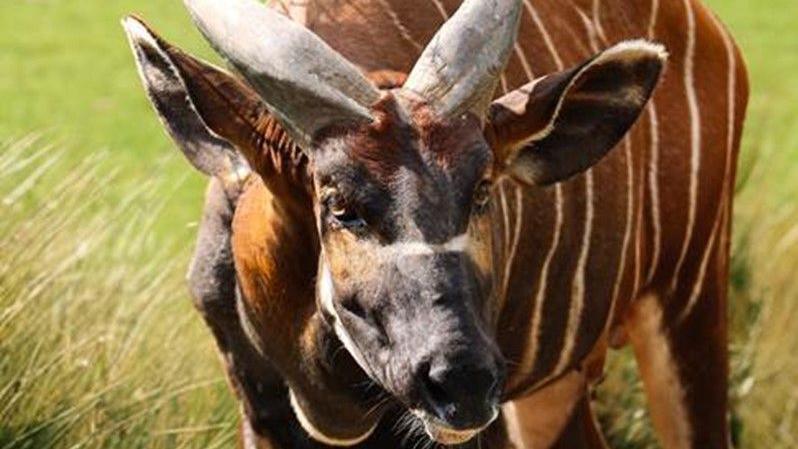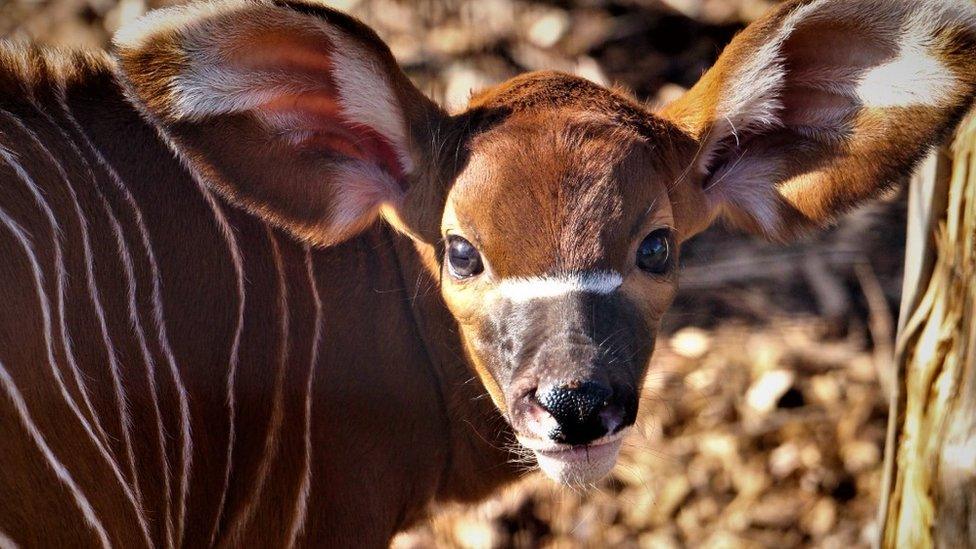Critically endangered antelope born at safari park

It is the first time an eastern mountain bongo has been born at Woburn in more than a decade
- Published
A type of antelope listed as critically endangered in the wild has been born in captivity in the UK.
Woburn Safari Park described the eastern mountain bongo calf's birth as hugely important for global conservation.
It is estimated there are fewer than 100 left in the wild and it is the first time the species has been born at the Bedfordshire park in more than 10 years.
Head of reserves Tom Robson said: "We are hoping in the future our new calf will travel to another wildlife collection and start a breeding group of his own."
Watch: The baby bongo is seen with its mother in video released by Woburn
On 16 October 2024, first-time mum Othaya welcomed her male bongo calf as part of an endangered species programme run by the European Association of Zoos and Aquariums.
Mr Robson said: "After a long labour, the large healthy male calf was born and was soon seen standing on wobbly legs in the deep bed of straw prepared for his arrival.
"Sonny, the calf’s father, joined the four-strong bongo herd at the park last November and successfully mixed with the females, wasting no time in doing his job and displaying breeding behaviours."

The eastern mountain bongo is classified as critically endangered in the wild after years of poaching
The calf has been spotted walking around the stable exploring his environment, sticking close to mum while he grows steadier on his hooves.
It is estimated the species, found in forested areas of Kenya, could be extinct in the wild within two decades after years of poaching.
The park said the birth represented a "significant success story" for its conservation.
Get in touch
Do you have a story suggestion for Beds, Herts & Bucks?
Follow Beds, Herts and Bucks news on BBC Sounds, Facebook, external, Instagram, external and X, external.
More stories like this
- Published7 June 2024

- Published9 October 2019
